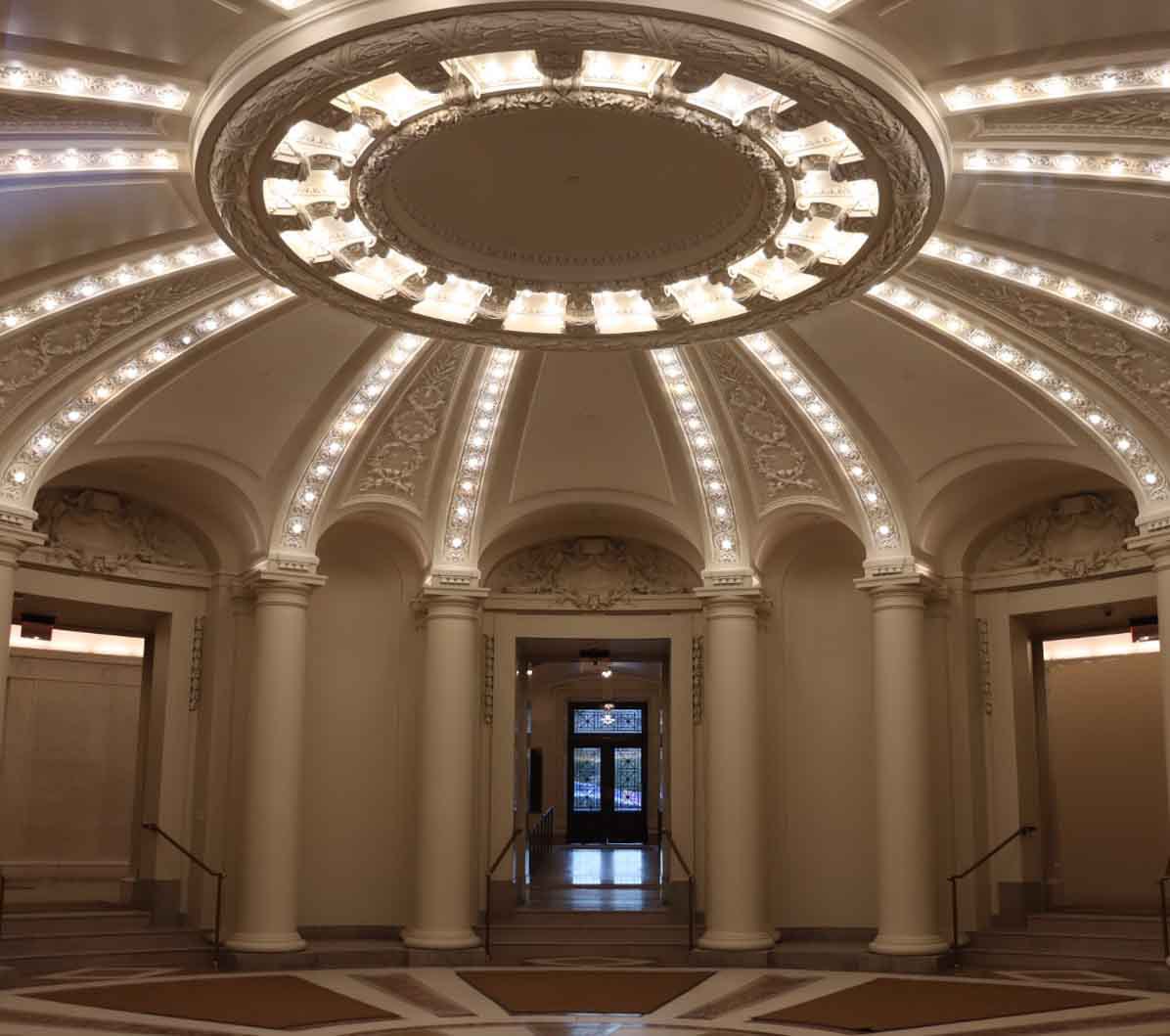Yale Philharmonia concert to preview not-yet-premiered Marsalis Concerto
This Thursday, the School of Music will perform “Overture to Egmont, Op. 84” by Ludwig van Beethoven, “Poem for Orchestra” by William Grant Still, “Symphony No. 1” by Samuel Barber” and “Tuba Concerto” by Wynton Marsalis with Carol Jantsch as the solo tubist.

Hedy Tung, Photo Editor
On Nov. 18, Yale Philharmonia will give an evening concert at Woolsey Hall, performing music composed by Ludwig van Beethoven, William Grant Still, Samuel Barber and Wynton Marsalis.
The program will open with Beethoven’s “Overture to Egmont, Op. 84,” followed by Still’s “Poem for Orchestra” and Barber’s “Symphony No. 1.” It will conclude with a preview of Wynton Marsalis’s “Tuba Concerto,” featuring soloist and School of Music faculty tubist Carol Jantsch, who will premiere the piece with the Philadelphia Orchestra in December. In-person audiences will continue to be limited to current School of Music and Institute of Sacred Music students, faculty and staff, per Yale’s COVID-19 safety policies.
“I’m really excited that the Yale Philharmonia, which is full of a bunch of really talented people, is excited to play new pieces that are stylistically different from a lot of things they normally play,” Jantsch said. “I’m really proud of them.”
Last weekend, the Philharmonia met Marsalis in person. According to Herdís Guðmundsdóttir MUS ’23, violinist and concertmaster of the performance, Marsalis joined rehearsals and gave the group various tips and ideas about how to play his concerto. For Guðmundsdóttir, this was a “great opportunity.”
“We are all classically trained, but he’s a jazz musician, so he was giving us a lot of tips about how to get around the piece,” Guðmundsdóttir said. “As a classical musician, playing jazz with a new piece by him feels pretty cool.”
Flutist Cameron Cullen MUS ’22 shared similar sentiments as Guðmundsdóttir, mentioning that the concert on Thursday will be a “pretty interesting program,” as it is different from the Philharmonia’s typical performances, which consist mainly of works from the Western canon. According to Cullen, mastering the concerto is still a work in process for the group — after rehearsing with Marsalis, the group went back home with a whole sheet of edits to change before the show.
The concert on Thursday will be one of the first ever performances of Marsalis’ concerto. Cullen said it is the highlight of the concert and an “awesome” experience to be a part of. Working with Marsalis also proved to be helpful for Cullen in preparing for this “slightly unconventional” program.
“[Marsalis] came to help us rehearse this piece, and just being in the same room with such a total legend in the jazz world — I grew up listening to his recordings, my dad would put on his records when I was tiny — was a whole thing,” Cullen said. “It was also very cool to get pictures with him afterwards.”
Still, the University’s COVID-19 restrictions also posed some challenges for orchestra members, with all performers required to be masked and use bell covers on their instruments. According to Jantsch, this is particularly difficult when using a wind instrument, as the way that these instruments make sound is by expelling air. Bell covers prevent air from coming out of the ends of these instruments.
Guðmundsdóttir said masks pose similar challenges for violinists. Before wearing masks during performances, Guðmundsdóttir did not realize how much she “heard” with her face, since vibrations from the violin are always coursing from her face to her ear. For Guðmundsdóttir, the “very dramatic and ultimate romantic” pieces like that of Barber require a lot of “tiny” details, which force Guðmundsdóttir to gesture and move her body more because of the mask.
During the pandemic, the orchestra could not practice as an ensemble. According to Cullen, the group is still “rusty” and “shaky” due to being out of practice with playing together — they do not always play in tune and time with each other and sometimes struggle to match all the nuances of articulation and rhythm across the room.
Still, orchestra members are looking forward to the concert and are happy to perform for audiences again.
“When you’re playing for an audience, you have that thread of connection. It’s four factors: you, your instrument, music and the audience,” Guðmundsdóttir said. “And when there is a camera, you have to find a nonhuman connection with the camera. It’s nicer to finally be able to play in front of real people and have that real life connection again.”
The following concert at Woolsey Hall will be “Praise, Peace, and Hope” by the Yale Camerata on Dec. 11.
Correction, Nov. 18: A previous version of this article incorrectly stated that the concert would be streamed live.







